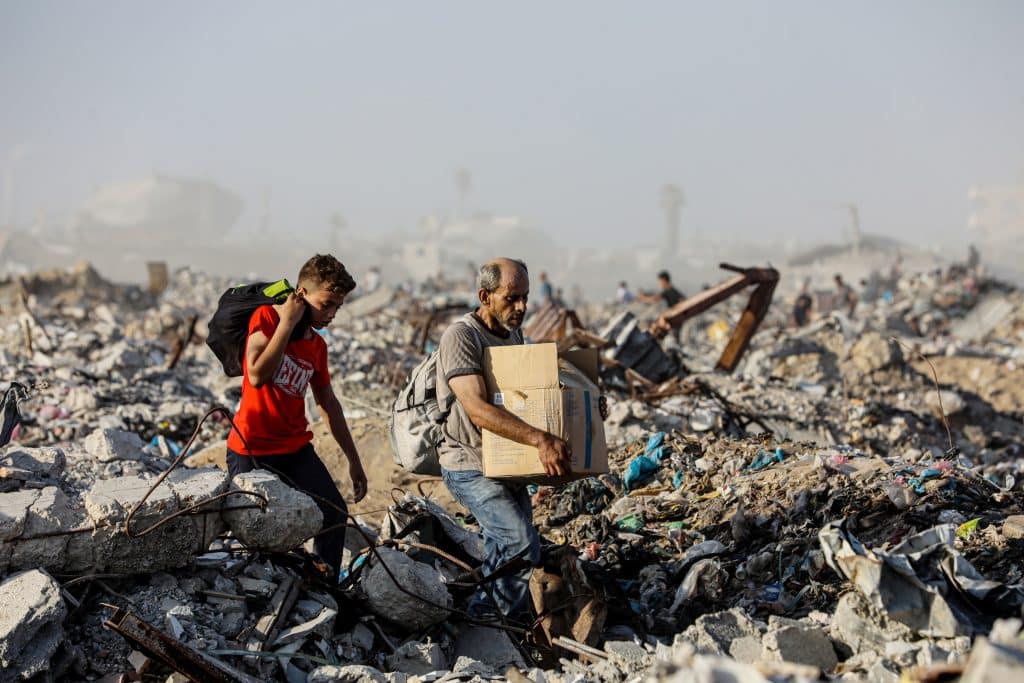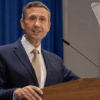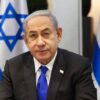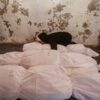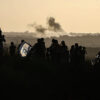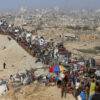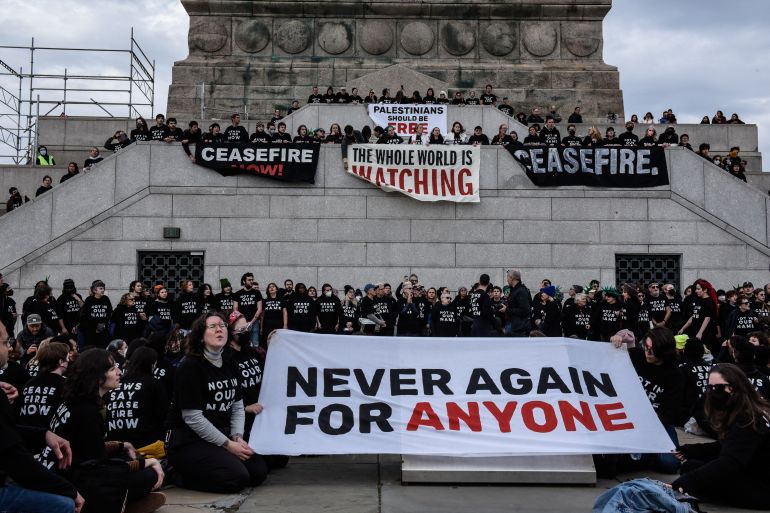It was 4:00 a.m. The air was thick with fog, and we could barely see a few meters ahead of us. I walked alongside my friend, Ahmad, toward the Israeli and American-controlled aid distribution center, run by the so-called Gaza Humanitarian Foundation. It felt like we were marching toward our own deaths, but we had no other option. Our tents had no food.
We only left because we had heard that the American distribution point might open at dawn. Everyone was saying to be there early — “Maybe you’ll get something.” Even though the chance was slim, it was better than sitting and starving. Ahmad and I had gone with nothing but the last drop of strength left in us.
We were sitting far from the sound of random gunfire, but even that wasn’t safe. One bullet could end you, and no one would find you.
Ahmad suddenly asked, “Do you think World War III might break out?”
I laughed bitterly. “You mean it hasn’t already?”
Suddenly, a quadcopter drone announced via loudspeaker: “The center won’t open today.” I felt crushed. Every step taken to get here was a risk, and now we were leaving with nothing. Ahmad’s eyes burned with anger, visibly more upset than I was. “I’ll stay, maybe they’ll open it later,” he said. I offered to share my three kilos of flour, and after some convincing, he agreed. But as we reached our tents — after walking in the cold dark for over a kilometer — we heard the center had reopened.
“I told you!” he shouted.
When I reached the tent, my mother, as always, didn’t ask if I brought back anything. Coming back alive was all that mattered to her.
That day, we cooked the last of our rice. One of my jobs in this war is to light the fire, but even that carries its own kind of suffering. There’s no sugar left in Gaza, but I had to make tea for my father anyway. We drank it, even though it tasted like ash.
Ahmad called: “Look up.”
Iranian missiles streaked across the sky. “Maybe World War III really is starting,” he whispered. If this isn’t a world war, what is? I thought.
The next morning, we had to go again. The al-‘Alam location might open. After Fajr prayer, Ahmad called. I knew it was time. I stepped into the dark, heading toward the al-‘Alam distribution point.
When we arrived, it was already crowded with desperate people. The army was already opening fire from every direction, gunshots echoing from drones and tanks rumbling far off, but we kept walking. Some hid behind sand dunes, holding knives or sticks to protect against looters.
“The gate is open!” someone shouted, and chaos erupted. Hundreds ran — men, women, children. I ran, too, losing sight of Ahmad. Dust and fear swallowed us. Then more gunfire.
People fell. Why shoot at us after opening the gate?
I finally reached the aid point, grabbed what I could, and stepped aside to breathe. The place felt like a cage. There were metal fences, and armed American mercenaries were watching us. It didn’t feel like help. It felt like humiliation.
As I left, I searched for Ahmad, shouting his name — but he was gone. A man whispered to me that he had come too late and couldn’t get anything. He had a family to feed. A moment later, he offered to help carry my bag in exchange for a little food.
There was something in his eyes — like he hadn’t always lived like this. Like me, and like countless Palestinians, he had a life before all this. I gave him some. All the way back, I kept thinking: Where was Ahmad? Was he safe?
When I got back, my family didn’t ask what I brought — they were just glad I was alive. But I couldn’t rest. I kept thinking about Ahmad. I changed clothes and went to look for him. Our phones were still charging. I went to his tent, calling his name.
Um Ahmad, his mother, came out, confused. “Didn’t you leave together?” she asked. I told her what had happened, and saw fear in her eyes.
I headed to the nearest hospital. The moment I entered, my heart sank: injured people everywhere, blood, silence.
I kept calling his name. Then I saw Yousef, his friend, who now drives people in exchange for a little food. “Ahmad was shot in the head,” he said quietly. “He’s in the ICU.” I couldn’t breathe. My cousin handed me a phone.
“It’s your mom,” he said.
But it wasn’t. It was Um Ahmad. Her voice trembled with hope.
“I’m sorry…Ahmad was shot. He’s in the hospital.”
The call dropped. Minutes later, a doctor came out, exhausted. “He’s in critical condition. He must be taken out of Gaza urgently.”
Ahmad wasn’t asking for much — just a chance to feed his family and escape the monster of starvation that had been devouring us for months.
The next morning, only my alarm rang. Ahmad didn’t call. Outside, I heard the crowds — people rushing again toward the new aid center at al-‘Alam.
Part of me said go. The rest said stay. I eventually decided to listen — I couldn’t brave it again after what happened.
I was caught between two impossible choices: slow death from hunger, or gambling my life for the chance of survival. We’ve survived famine before, but never one that stripped us of our humanity. I remember when we were still seen as people.
I haven’t gone back yet — not since that day. I still hear the gunshots in my head. I still see Ahmad’s face before he fell. But hunger doesn’t care — it comes back every morning.
And one day, soon, I may have to make that deadly trip again.
By: Hassan Herzallah
Source: Mondoweiss
